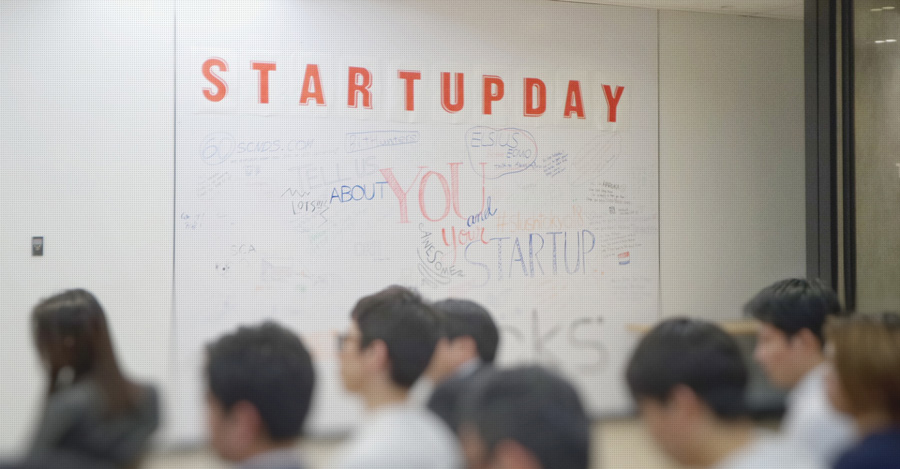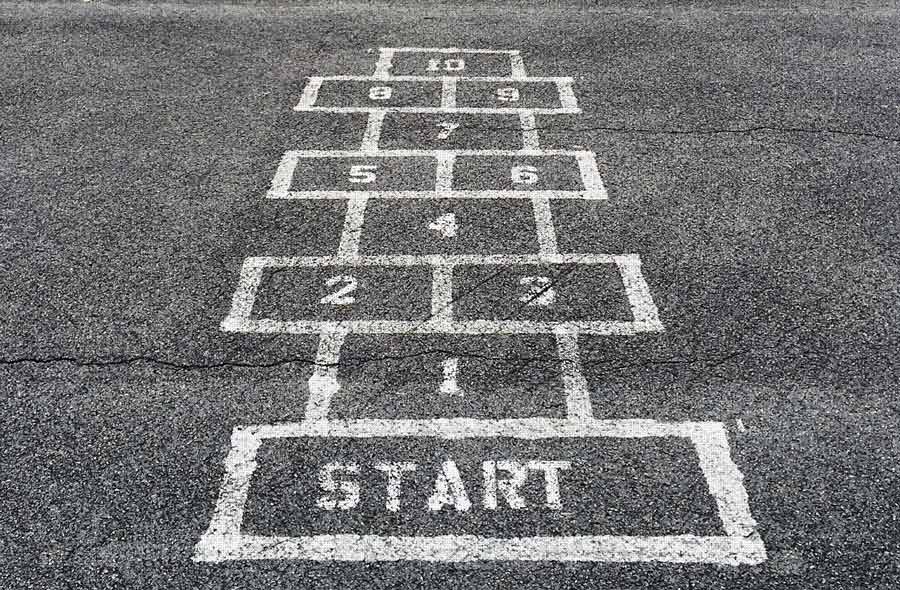New to the PhD? Looking forward to an exciting time in your life? Bet you are! But maybe you’re also feeling a bit anxious for how to get this major undertaking started off right? Do you wonder what things you should be aware of? We’ve got it for you right here: Our 5 essential tips for new PhDs!
Have you started your PhD recently – or are just about to getting started and looking for a way to get off on the right foot? You’ll share this feeling with many other PhDs who start with the beginning of a new academic year. We recently came across the following post in a Facebook group that says what you’re all thinking:
“Hi everyone! I am working on my doctorate in Educational Leadership at Georgia State University, and I just began last week. What tips do you have for someone just starting their journey?”
As academic career consultants, who’ve been advising PhD students for more than a decade, this is the one question that makes us bubble over with suggestions. We could literally give you tons of tips and a quote like this makes us want to pass on all the wisdom we’ve ever gathered about PhD students to you.
With that said, you would likely be overwhelmed and not get much out of an outpouring of advice. So instead, we thought we’d distill a few solid tips that will be really useful right from the start and also essential to your success in the long run.
At the beginning of a PhD education, you have a lot of choices and many decisions to make. Your ‘room-to-manoeuver’ is quite large. But later on, this narrows and you become more fixed in every aspect of your project. So it is essential that you put everything surrounding your PhD on the right track now – to get off to a good start and reap the benefits in the long run!
1. Be wary – time flies
If you are right at the beginning, and you’re in a structured graduate programme, you’ve likely got 3-4 years (or more depending on your funding and country) of PhD time ahead of you.
Quite understandably, this may seem like an eternity to you. It may seem like you have years of endless freedom ahead of you to work on a topic that you find captivating and thrilling. Right now, your calendar may be nearly empty and your task-list short. The pressure is lowest right at the beginning, so you don’t perceive any urgency to quickly crack-down on your project ideas. But be aware that one PhD student after another gets caught in the trap of losing too much time in the early months, time they can’t make up for later on. This is the no. 1 regret of PhD students nearing the end: they did not take the time seriously enough at the beginning.
Tips:
- Be aware of the fact that your PhD clock starts ticking from the very first day. What may help you is to have a calendar in your office or phone with a countdown to your hand-in date (or end of contract if that is more appropriate in your case). This way you’re reminded every single day that time is your scarcest resource.
- Do not spend the first weeks hanging around without any direction. Instead make up your mind very quickly for what the focus of your PhD will be. Zoom in to that, develop a project goal and start working on it.
- If you are not clear on your topic or your project goals – then to develop this is the most important work for you to do right now.
- For further advice, read our SMART ACADADEMICS blog post no. 2: So you want to finish your PhD on time? and download our free expert guide “5 Reasons Why PhD Students Delay and How to Avoid” .
2. Gear up your work-ethics
Some of you have just completed a Bachelor’s or Master’s Degree and likely finished it with stellar marks – otherwise you wouldn’t be working on your PhD now. Others may not be coming straight from university, but have had a few years of professional work experience under their belts. All of you have beaten a tough competition to earn a grant, get a scholarship and make it through the job interviews.
Careful: don’t fall into the trap of thinking ‘Hey, I made it, I can relax now’ or think that the skill-set or mindset that brought you here will make you successful in the coming years!
This is a new game and the rules are different. The level of ambition and complexity of a PhD project is not comparable to a Masters programme or anything you’ve experienced in the corporate world. A PhD is not meant to be an easy journey, and not everyone finishes in the end. How successful you are in your PhD depends as much on your attitude and work-ethics as on everything else.
Tips:
- Don’t think this will be easy! Approach your PhD with the right attitude: respectfully and seriously . A PhD is an unwieldy beast and you’ve got to master it in the end. You can do it, and you should be confident that you’ll be successful in the end. But you should also acknowledge that it will take all your energy, strengths and effort to do so.
- Step-up your work ethics, not just one, but 2-3 gears: Gone are the days of excessive partying, late-night outs and long lie-ins (keep that for the weekend). Instead, from your very first day onwards, try to be as focused and efficient as possible. Work hard and concentrate on the most important tasks every single day that will bring you ahead quickly.
- Make important decisions early on and move forward with your project rather than postponing out of fear of making the wrong decisions.
- Establish a good working routine: Get up early and work on your most important tasks during the morning while your energy level is still high and you’ll find it easier to focus.
- For more tips on strengthening your work ethic and efficiency read our SMART ACADEMICS blog post no. 4: “How to make time for research” and download our free expert guide: “How to boost your productivity as a researcher”.

3. Read, read, read
You’ve got a steep learning curve ahead of you. In just a few weeks (ideally) you have to make a quantum leap to familiarise yourself with the most significant scholarly discourses and current trends in your field.
There’s no way around it. If you don’t know what’s going on in your field, you:
- won’t know what others have already done (probably resulting in a duplicate of a project)
- won’t know what the most significant and crucial questions are right now – so you can’t judge the relevance and importance of your own project ideas
- won’t know what approaches and methods are standard in your field, so you won’t have a blueprint to approach your own ideas.
This is like becoming fluent in a foreign language: If you’ve never been through the foundations of its grammar, you’ll never be able to speak it without mistakes.
Towards the end of your PhD, as you become an expert, you’ll need a solid foundation (and keep it updated) so you can challenge existing beliefs and customs, and you can develop a new way of thinking. That is the point where science really get’s interesting and you’ll be able to make a significant contribution to your field.
The literature you could potentially read today is virtually unlimited, but your time is. If you try to get started all on your own you’ll likely get confused, lost or overwhelmed.

Tips:
- Here’s a shortcut that works wonders: Ask your supervisors, plus a few colleagues and post-docs around you for the five to ten most relevant published papers in your field. Mention that you want to get an overview and that you want to use their suggestions to get a head-start.
- Start with reading those papers or books that everyone has on their list and then make your way through the rest.
- It’ll be really hard at the beginning, and you’ll find it difficult to understand at times but don’t worry, this is normal, just keep going, because it will get easier the more you read! Don’t hesitate to get back to those who suggested a paper to you and ask them to explain a particular aspect or section that does not make sense to you. You’re right at the start of your PhD, so you’ve got a right to ask.
- Get used to making notes or short excerpts right after you finished a paper – jot down the overall thoughts and results that are presented. This will later help you develop your writing skills. Over time you’ll gradually move on to spend more time writing than reading. For more great tips on writing see our SMART ACADEMICS blog post no. 5: How to get started with writing papers? and download our free expert guide “5 Strategies to Avoid Initial Paper Rejection”
- Read every single day and make it a primary activity. Decide on a time-span (e.g. 1-2 hours at a time) and one clear task (e.g. to read one particular chapter in a book or one paper). Stop afterwards and turn to something else. Identify places and times during your workday when you read best and make it a habit: Read in the morning when you commute to your institute, or read before starting your lab work, read in the canteen before lunch, or hide in the library in the afternoon, where you’re completely undisturbed. Find out what works best for you and stick with that!
4. Shed your “I’ll-go-it-alone-attitude”
You’ve taken on a difficult project and not every PhD makes it to the finish line. One of the biggest mistakes you can make is to think that you can or have to do this on your own. PhDs often seem to think that those around them expect them to know everything. That is wrong.
PhD students who adapt an ‘I’ll-go-it-alone’-attitude, often isolate themselves. That has consequences, both social and intellectual:
- They concoct their projects in their own chamber, without much exchange with peers which may lead them to develop far-fetched ideas that are not in line with mainstream trends in their discipline, marginalising themselves. They may have flaws built into their research methods that go uncovered for a long time and are difficult to rectify later on.
- They do not search for or receive regular feedback. So when they finally have to present their ideas or work, they often get much harsher criticism. Since they’re not used to being critiqued, and because the problems might be serious at this point, it will hurt even more.


Tips:
- Resist any temptation to isolate yourself, but try instead to develop a broad network for support. Expose yourself to scholarly debate and scrutiny right from the start of your PhD. Simply put yourself out there at the beginning – you’ve got nothing to lose.
- Seek out suitable academic situations like PhD days, internal lecture series, lab meetings, graduate school events where you can present your ideas and your early work. Don’t think:
- It’s too early, I can’t discuss my ideas
- I can’t show my work yet
- I’m not ready
- I’m not smart enough, or I don’t know enough to participate
- The feedback you’ll receive on each occasion will help you to grow. Every little remark from colleagues will help you to reflect on your work and improve it. The quality of your PhD will tremendously benefit from this. It’ll also prevent you from making bigger mistakes or going off on a direction that is not worthwhile.
- The more support you have from those around you, the better. That way you’ll have someone to go to in each situation: whether it’s a shoulder to cry on or an expert to address with a tricky question. Built a solid and diverse support network with your:
- supervisors
- graduate school coordinators
- PhD students, who started together with you
- more advanced PhD students & postdocs
- senior colleagues in your work-group or institute
- international scholars or teachers that you get to know over time as you attend scientific events.
5. Grow thick skin
Academia is not an environment for the faint-hearted, but an extremely competitive surrounding, where everyone has to fight for their space, jobs, funding or a better place in rankings. After months of hard work, your papers can still be rejected, your proposal goes unfunded, and your best ideas dismantled by your colleagues. You’ll discover that you’ve made a huge mistake in your data-collection that renders weeks of work useless and you’ve no idea how to make up for that! It is also normal that even the nicest team or cosiest workplace can feel hostile at times. Especially because this is your project and your work, every rejection, setback or failure hits you personally!
You’ll have your ego bruised more than once, and likely a few setbacks that may feel like more than you can handle. There will be days when you don’t want to show up at the institute anymore, and moments you’ll be tempted to quit. Those that are overly sensitive often struggle in an academic environment and mental health issues among PhD students is a well-documented and rampant problem. For more information, see “Being a PhD student shouldn’t be bad for your health” Nature (vol. 569, p. 307).
Tips:
- You can’t avoid every disaster during a PhD, but developing the ability to pick yourself up again after a major setback is a must. Getting your act together and moving on is part of the journey and those who master it will be the successful ones in the end.
- Try to keep things in perspective – you may have been criticised, or failed, were wrong or forgot something, but instead of dwelling on that (and increasing your misery) look on the ‘bright side of life’! Ask yourself positive questions, like what have you achieved recently, what went well, what you succeeded with?
- Don’t build your entire personality of ‘who you are’ into this PhD. This is your job right now and a big part of your life, but never let it become the entire you!
- Find a way to disengage. Literally unplugging and not thinking about your PhD, your team, your institute for a time helps! Make sure you have other activities to look forward to in the evenings and on the weekends. Coming back the next morning or at the start of a new week relaxed and with a fresh mindset will help to avoid mistakes, as well as not take things too seriously when they occur.
- Support from your network (see point 4.) but also friends, family and loved ones works wonders! They’ll keep up your motivation and show you that there is a life beyond the PhD.
Conclusion:
We’re really not trying to scare you, but as they say “truth hurts”. There are a lot of common mistakes we see people making at the beginning of their PhD that can snowball into a lot of stress, wasted time and missed opportunities! We do not want your PhD experience to be anything like this – we thought we’d better give you some tough love now! It is essential to start your PhD off on the right foot and avoid the traps that so often befall young researchers with seemingly endless time on their hands. We hope you can learn from our five tips to keep your work on track, your motivation high and your attitude solid. A PhD can be a beautiful thing. Most importantly, we urge you not to forget to….
…enjoy the ride!
This should actually be the sixth point on our list. When we think back to our PhD years, we remember it as a very happy time in our lives! Most days, we were thrilled to come to the institute, and see what exciting experience lay in store! It’s a time of discovery, where you make connections socially and intellectually at your own institute, but also at national or international scientific events. The highs of this time by far outweighed the lows we had to endure! It will all be worth it in the end when you’re holding your doctor’s degree in hand!
Do you have any personal tips for new PhDs? What advice would you give to PhD students who just started? Share your ideas with us on Facebook or drop us a note at info@tressacademic.com .
Related resources:
- Smart Academics Blog #2: So you want to finish your PhD on time?
- Smart Academics Blog #4: How to make time for research?
- Smart Academics Blog #5: How to get started with writing papers?
- Smart Academics Blog #46: What makes PhD students succeed?
- Smart Academics Blog #47: Plan your project – save your PhD!
- Smart Academics Blog #112: PhD project-planning quick-start
- Expert guide “5 reasons why PhD students delay & how-to avoid”
- Expert guide: “How to boost your productivity as a researcher”
- Expert guide “5 Strategies to Avoid Initial Paper Rejection”
- TRESS ACADEMIC course: Completing your PhD successfully on time
- Nature (2019): “Being a PhD student shouldn’t be bad for your health”. Vol. 569, p. 307.
More information:
Do you want to complete your PhD successfully?
If so, please sign up to receive our free guides.
(c) 2019 Tress Academic
Photographs by Jon Tyson, Dollar Gill & Franck at unsplash.com
#PhDProject, #PhDStudies, #PhDDegree, #TimeManagement, #Focus
